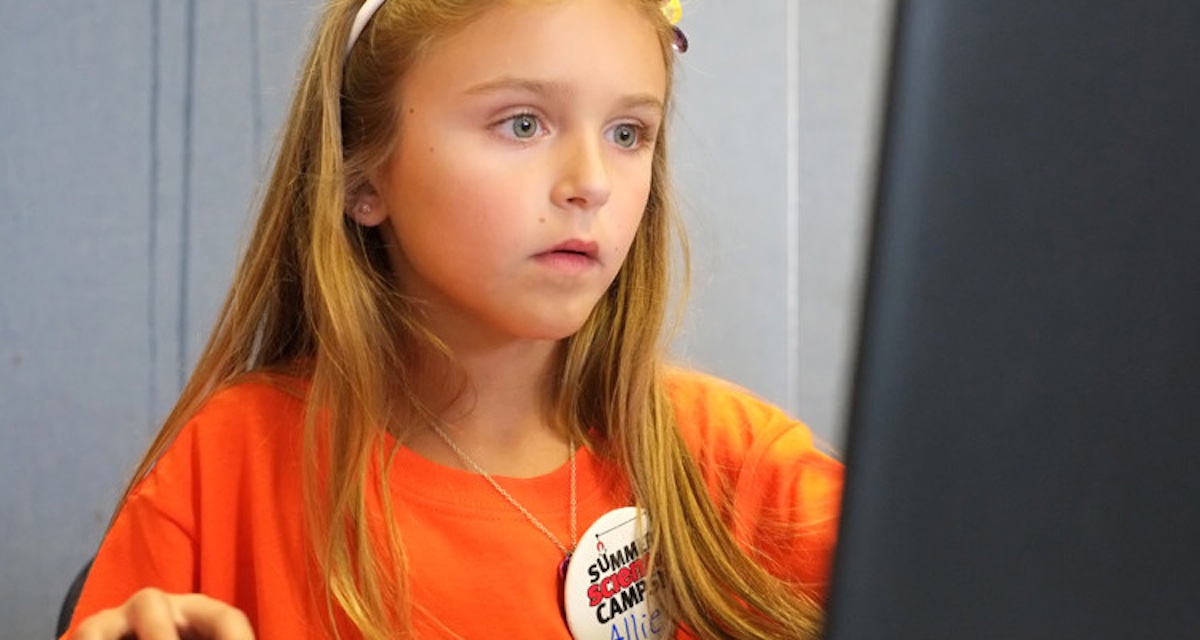
How STEAM programs are transforming education in Pittsburgh
Educators in Pittsburgh are gathering STEAM when it comes to finding more engaging ways to teach students highly technical skillsets. That’s STEAM as in science, technology, engineering, arts and math.
Cool software programs like Scratch are firing up the youngest of learners to tackle computer coding. Older students are creating projects with 3-D printers and video software in their study of ancient civilizations. Teachers are bringing the study of primitive art techniques and the science of aquaponics to light in entirely new ways.
Four media partners in Pittsburgh—NEXTpittsburgh, WQED Multimedia, 90.5 WESA and Pittsburgh Magazine—have been reporting on learning innovation initiatives like this in the region for the past year. Together “Remake Learning” is shining a spotlight on everything from innovations in early childhood learning to making, gamification, STEAM and robotics.
The following is a sampling of some of the stories we are telling on the STEAM initiatives taking place around the Pittsburgh region.
How Etextiles teach students computation thinking
Manchester Academic Charter School is one of three schools benefitting from the talents of Melissa Unger, the STEAM consultant for the South Fayette School District. A Grable grant enables Melissa to bring a plethora of STEAM activities to her students that teach computational thinking, among them Scratch, WeDo Robotics and environmental sustainability. One of the projects, Etextiles, is bringing learning to a whole new level, she says. Not only does it teach students about computational thinking and computer programming, but it involves them in aspects of clothing design.
The Allegheny Intermediate Unit (AIU) STEAM Grant Showcase isn’t just a fair in which kids make models of molecules, they’re making the stuff that makes the models using 3D printers. If the subject is history, they aren’t simply making posters to illustrate a historical story; instead, they create actual Egyptian artifacts. The showcase, held in September 2014, displayed work and projects from 25 schools in the region. The AIU gave $25,000 to each schools for the showcase of the best of STEAM learning.
Cyber student, teen teacher and lead guitarist
Caroline Combemale moves to her own rhythm. While her life has been shaped by a loving family, the Belgium native has had her share of hardships. Combemale has a physical health problem called Complex Regional Pain Syndrome, a chronic condition characterized by severe pain in the joints and muscles. She also has been bullied in school. It got so bad that her parents choose to send her to a cyber charter school, which proved the best choice for her. Today she is flourishing and has the flexibility to not only attend to her studies but pursue her other interests including volunteering at Assemble, teaching other students Scratch and learning the guitar.
Dream Factory is not only teaching skills, but changing the culture of the school
Going to school is a dream for the 550 students at Elizabeth Forward Middle School. That’s because administrators and educators have taken traditional classes like computer science, art and tech education and created an initiative called, “Dream Factory, a program that inspires students to create in entirely new ways. Students study robotics and automation, create tech videos and use 3-D printers to produce projects. While they learn traditional art techniques and skills, they also use programs like 123 Design, Adobe Photoshop and Animation Express. The Dream Factory is changing the culture of the school says administrator Dr. Bart Rocco.
Chevron Center for STEM Education
Since 2011, the Chevron Center for STEM Education and Career Development has worked with students, teachers and the Pittsburgh community to increase success and achievement in schools. Located in the Carnegie Science Center, Chevron’s STEM efforts work to inspire students from pre-kindergarten through 12th grade with experiences in science and technology.
Q&A with Aileen Owens at South Fayette School District
South Fayette School District is using the program Scratch to teach young students how to code. Aileen Owens, director of technology and innovation, shares the benefits of this block-based, simple programming language and how well children respond to it. The program was invented at MIT.
Making learning fun and educational at Fort Cherry High School
Students in Jodie Hoover’s agricultural and environmental sciences classes at Fort Cherry High School in McDonald may tackle biology and soil composition one day, animal husbandry the next. Studying plants, animals and the environment is an important part of the hands-on curriculum. The ninth through 12th grade students might not make this their career, but they learn to be better consumers, says Jodie. The program incorporates all the elements of STEAM so while they are learning about aquaponics, they are also taking measurements and monitoring the growth of plants. The arts come in because they have to actually sell the product to the community. “And they’re having fun,” she says.
The project was made possible through a grant from the Grable Foundation.
This article originally appeared in NEXTpittsburgh.
